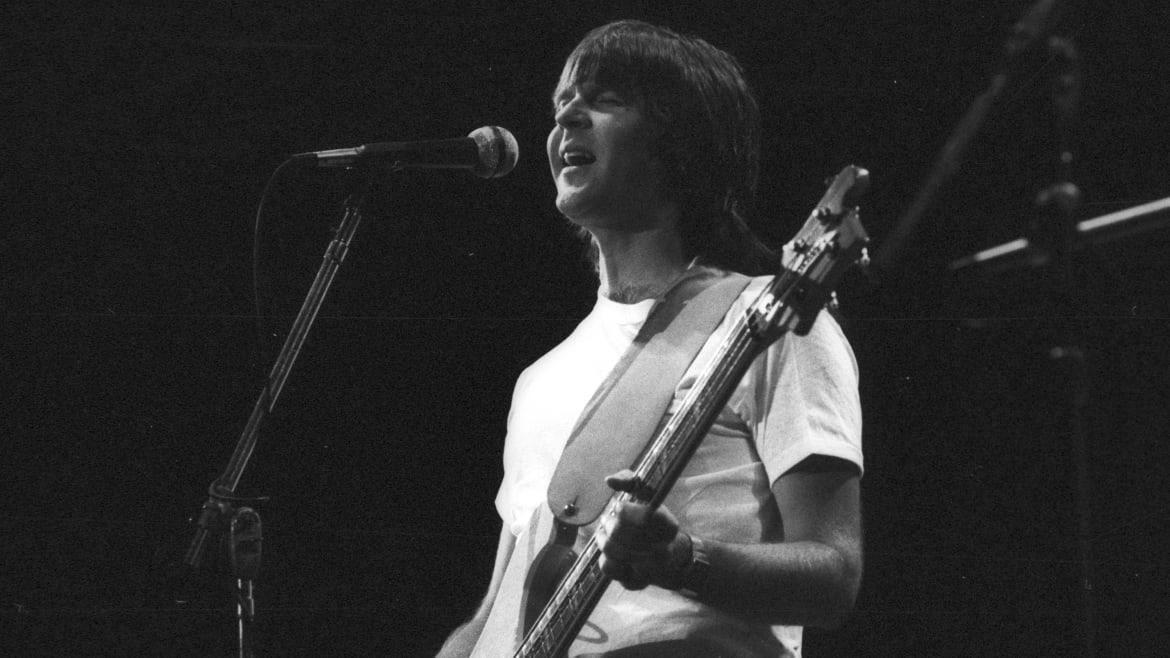Randy Meisner, Founding Member of The Eagles, Dies at 77

Randy Meisner, the bassist whose soaring tenor helped elevate some of the greatest hits ever put out by the Eagles, died on Wednesday night in Los Angeles, the band announced. He was 77.
Meisner died of complications from chronic obstructive pulmonary disease, according to a statement on the Eagles’ website. “Randy was an integral part of the Eagles and instrumental in the early success of the band. His vocal range was astonishing, as is evident on his signature ballad, ‘Take It to the Limit,’” the group said.
Don Felder, who joined the Eagles as lead guitarist in 1974, wrote in a social media tribute that Meisner had been “one of the nicest, sweetest, most talented, and funniest guys I’ve ever known. It breaks my heart to hear of his passing. His voice stirred millions of souls every time he sang Take It To The Limit.”
The son of Nebraska farmers, Meisner picked up a guitar at 10 years old after seeing Elvis Presley perform on The Ed Sullivan Show. He developed his signature clarity and texture on the bass in the late 1960s with Poco, the seminal country-rock band formed by Richie Furay and Jim Messina, survivors of Buffalo Springfield’s implosion.
It wasn’t until 1971, when Meisner was working as a backing musician for Linda Ronstadt alongside three other musicians named Don Henley, Glenn Frey, and Bernie Leadon, that the Eagles were born. He wrote or co-wrote many of the songs on the five albums the band would churn out in its first five years.
When he performed live, though, Meisner was largely content to stand away from the spotlight, hiding near the piano as he provided bass licks and backing vocals. If called upon to sing lead—not just on ‘Take It to the Limit,’ but also other beloved tracks like ‘Try and Love Again’ and ‘Certain Kind of Fool’—he’d do so with his eyes squeezed shut.
Still, “Randy had one of the best voices in the band,” Felder recalled in his autobiography, Heaven and Hell: My Life in the Eagles. “He made women scream… Hitting the high note at the very end guaranteed an almost deafening round of applause, sometimes for several minutes. Glenn once called it ‘the ribbon on our package.’”
But this discomfort with being center-stage gnawed at him as the band’s star rose and—coupled with health issues, homesickness, and constant bickering with his bandmates—it all came to a head during a 1977 world tour tied to the release of the iconic album Hotel California.
On the eleventh month of the tour, suffering from exhaustion, the flu, and stomach ulcers, bickering constantly with Glenn Frey, his marriage disintegrating, Meisner decided it was time to go home. An explosive fight that turned physical with Frey one night backstage sealed the deal, according to Felder. He finished the tour and went back to Nebraska.
Meisner never reunited with the Eagles again (though he did get back together with Poco for a 1989 reunion album.) He stood with the band, however, as they were inducted into the Rock & Roll Hall of Fame in 1988, and played on both ‘Take It Easy’ and ‘Hotel California’ that night.
A year after quitting the band, he launched a solo career, scoring hits with singles like ‘Hearts on Fire’ and ‘Deep Inside My Heart.’ Meisner also racked up some impressive studio credentials, playing on records for the likes of Joe Walsh, James Taylor, Dan Fogelberg, and Richard Marx.
His later years were troubled by tragedy. He struggled with bipolar disorder and substance abuse issues, and was put on psychiatric hold at least once. In 2015, a judge placed him under a temporary conservatorship. A year later, his second wife, Lana Rae Meisner, fatally shot herself inside the couple’s home in what the Los Angeles Police Department called an “accidental discharge of a firearm.”
He is survived by his three children, Dana, Heather, and Eric, and his first wife, Jennifer Lee Barton. Funeral plans were pending, the Eagles said in their Thursday statement.
Get the Daily Beast's biggest scoops and scandals delivered right to your inbox. Sign up now.
Stay informed and gain unlimited access to the Daily Beast's unmatched reporting. Subscribe now.
